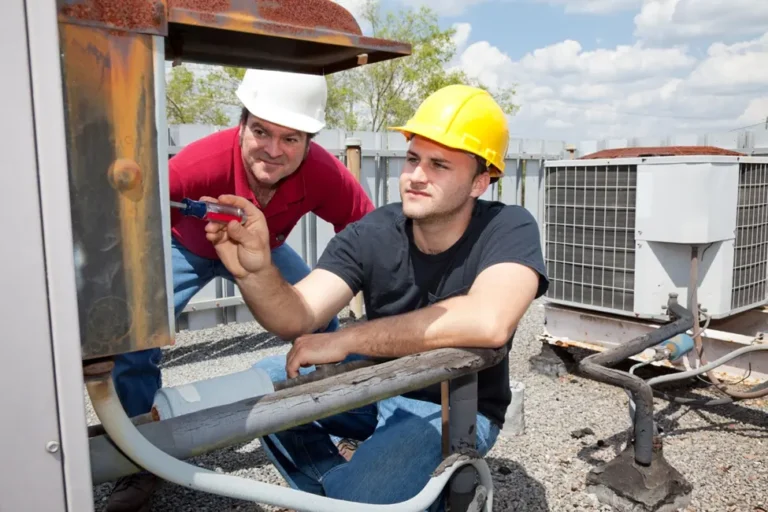Repair or Replace? Making the Right Choice for Your AC Unit
Deciding whether to repair or replace your air conditioner is one of the most common—and often most frustrating—questions homeowners face during the warmer months. Maybe your system has started making strange noises, or it’s just not cooling your home the way it used to. If you’re noticing inconsistent temperatures, rising energy bills, or frequent breakdowns, you’re probably wondering if you should continue paying for repairs or finally invest in a new unit. Knowing when to replace air conditioner systems versus opting for repair can save you both time and money, and ensure your home stays comfortable year-round.
While there’s no one-size-fits-all answer, several factors can help guide your decision. In this post, we’ll explore the key considerations, including the age of your unit, repair costs, energy efficiency, and your long-term plans for your home.
The Age of Your Air Conditioner
One of the first things to consider is the age of your current system. Most air conditioners have a lifespan of 10 to 15 years. If your unit is approaching or has passed the 10-year mark, and you’re starting to experience performance issues, it may be time to start looking into replacement options.
Technology has advanced significantly in recent years, so a newer system will likely offer better efficiency, lower energy costs, and improved comfort. If your unit is under 10 years old and has been well-maintained, repair might still be the more practical and economical option.
When deciding whether to repair or replace your AC unit, it’s crucial to consider the age and efficiency of your current system. An older unit may not only be less efficient but could also be more prone to frequent breakdowns, leading to higher repair costs over time. In such cases, consulting a professional for advice can be invaluable. For those in need of expert guidance, especially if you’re also dealing with heating issues, seeking services like furnace repair charleston can provide comprehensive solutions to ensure your home remains comfortable year-round. This holistic approach can help you make an informed decision that balances immediate needs with long-term benefits.
When deciding whether to repair or replace your AC unit, it’s crucial to consider the age and efficiency of your current system. An older unit may not only be less efficient but could also be costing you more in energy bills. Additionally, frequent repairs can add up, making replacement a more cost-effective option in the long run. For those seeking professional advice or services, it’s beneficial to explore local options that can provide tailored solutions. Read more to discover a trusted service provider in your area that can help you make the best decision for your home comfort needs.
Frequency and Cost of Repairs
It’s perfectly normal for air conditioners to need the occasional repair, especially as they age. However, if you find yourself calling in a technician multiple times a year—or paying for increasingly expensive parts—it may be time to cut your losses.
A helpful rule of thumb is the 50% Rule: If the cost of repairing your AC is more than 50% of the cost of a new system, it’s better to replace it. This is particularly true if the repairs don’t guarantee long-term reliability.
You can also add up recent and expected repair costs. If those costs exceed what you’d pay for a new unit in just a few years, a replacement becomes the smarter long-term investment.
When deciding whether to repair or replace your AC unit, it’s crucial to consider the age and efficiency of your current system. An older unit may not only be less efficient but could also be more costly in the long run due to frequent repairs. Additionally, newer models offer advanced features that can significantly enhance comfort and reduce energy bills. For those looking to delve deeper into making an informed decision, Learn more about the latest advancements and options available to ensure your home remains comfortable and energy-efficient.
Energy Efficiency and Operating Costs
Older air conditioning units are significantly less energy-efficient than newer models. Systems manufactured even 10 years ago lack the efficiency ratings and eco-friendly refrigerants that modern systems offer.
If you’ve noticed your electricity bills creeping higher each summer despite consistent use, your aging AC might be the culprit. Replacing it with an energy-efficient unit with a higher SEER (Seasonal Energy Efficiency Ratio) rating can result in major savings on your monthly energy bills. To further cut costs, it’s smart to compare local provider options like Dickens electricity rates. Choosing an affordable plan combined with an efficient AC unit can significantly reduce your overall energy expenses.
Additionally, newer systems often come with programmable thermostats, variable-speed compressors, and zoning capabilities—all of which can improve performance and reduce energy usage.
When considering whether to repair or replace your AC unit, it’s essential to evaluate the age and efficiency of your current system. If your unit is over ten years old and frequently breaks down, investing in a new system might be more cost-effective in the long run. For those leaning towards replacement, professional ac installation can ensure your new unit operates at peak efficiency, providing better cooling and energy savings. Additionally, modern systems often come with advanced features that enhance comfort and air quality, making the investment worthwhile.
When deciding whether to repair or replace your AC unit, it’s crucial to consider the age and efficiency of your current system. An older unit may not only be less efficient but also more prone to frequent breakdowns, leading to higher repair costs over time. Consulting with professionals can provide valuable insights into the best course of action. For those seeking expert advice, Arthur Heating & Air offers reliable guidance and services to help you make an informed decision. Their team can assess your unit’s condition and recommend whether a repair or replacement would be more cost-effective in the long run, ensuring your home remains comfortable and energy-efficient.
When deciding whether to repair or replace your AC unit, it’s crucial to consider the age and efficiency of your current system. An older unit may not only be less efficient but also more prone to frequent breakdowns. In such cases, consulting a professional for an air conditioning repair service can provide valuable insights into the condition of your unit. They can assess whether a simple repair will suffice or if a replacement is more cost-effective in the long run. This approach ensures that you make an informed decision, balancing immediate repair costs with potential future savings on energy bills and maintenance.
Comfort and Performance Issues
Another critical factor in the repair vs. replace decision is how well your air conditioner is performing. Even if your system is technically functioning, it may no longer be doing its job effectively.
Here are some performance-related signs that it might be time to replace:
- Hot and cold spots throughout the home
- Poor airflow or weak output from vents
- The system runs constantly without reaching the set temperature
- Excess humidity in the air
- Unusual or loud noises
These issues are often symptoms of a system that is struggling to meet the demands of your space—something that repairs alone may not solve.
Availability of Parts and Refrigerant
If your unit uses the now-banned R-22 refrigerant (commonly found in units made before 2010), finding replacement refrigerant can be expensive or impossible. The Australian government has phased out R-22 due to its harmful environmental effects, so maintaining these systems is becoming increasingly impractical.
If your AC relies on R-22 or other outdated components, replacing it with a newer system that uses environmentally safe refrigerants is not just better for the planet—it’s better for your wallet and long-term peace of mind.
Your Long-Term Housing Plans
Your future housing goals can also influence whether you repair or replace. If you’re planning to stay in your home for several more years, investing in a new, efficient AC system can increase comfort, reduce operating costs, and potentially boost your home’s resale value.
On the other hand, if you’re moving within the next year or two, a repair might make more sense—provided it keeps the system running safely and effectively in the short term.
However, bear in mind that an old or unreliable AC unit can deter potential buyers, who may factor the cost of replacement into negotiations.
Environmental Considerations
Upgrading to a modern, energy-efficient system is not only good for your budget—it’s also better for the environment. Newer air conditioners consume less energy, produce fewer greenhouse gas emissions, and are often compatible with smart home systems that allow for more precise control and reduced waste.
If you’re committed to lowering your carbon footprint, replacing an inefficient unit is a step in the right direction.
Getting a Professional Assessment
While the above factors can help you make an informed decision, it’s always a good idea to have a licensed HVAC technician inspect your system. They can assess the condition of your AC, estimate remaining lifespan, and give you a cost comparison for repair versus replacement.
Make sure to choose a trusted professional who can provide a clear, itemised estimate and explain your options without pressuring you into an unnecessary upgrade.
Final Thoughts
Making the decision to repair or replace your air conditioner isn’t always easy, but it’s an important one for your home’s comfort, safety, and efficiency. Knowing when to replace air conditioner units can save you from unexpected breakdowns, rising energy bills, and endless repair costs.
In general, if your system is older, inefficient, and frequently in need of repairs, replacement is often the smarter long-term choice. On the other hand, newer units with minor issues are usually worth fixing—especially if the repair is minor and the system is otherwise in good shape.
Whether you choose to repair or replace, acting early and staying informed will help ensure you’re not left sweating through the next heatwave with a failing system.
Also Read-Wholesale Plumbing Suppliers: Everything You Need to Know






